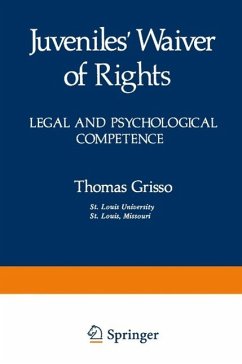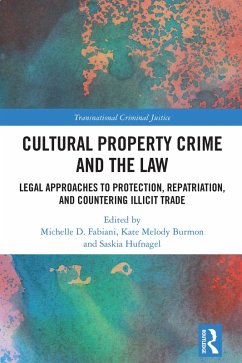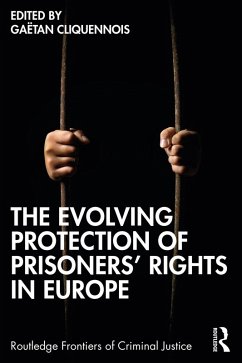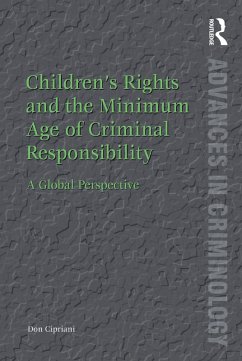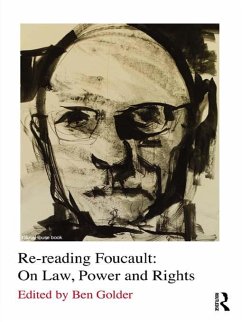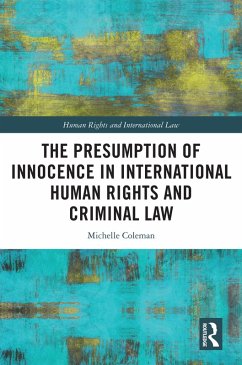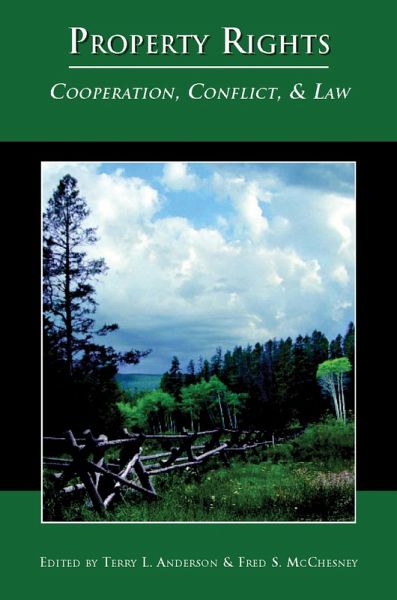
Property Rights (eBook, PDF)
Cooperation, Conflict, and Law
Redaktion: Anderson, Terry L.; McChesney, Fred S.
Versandkostenfrei!
Sofort per Download lieferbar
47,95 €
inkl. MwSt.
Weitere Ausgaben:

PAYBACK Punkte
24 °P sammeln!
The institution of property is as old as mankind, and property rights are today deemed vital to a prosperous economic system. Much has been written in the last decade on the economics of the legal institutions protecting such rights. This unprecedented book provides a magnificent introduction to the subject. Terry Anderson and Fred McChesney have gathered twelve leading thinkers to explore how property rights arise, and how they bolster economic development. As the subtitle indicates, the book examines as well how controversies over valuable property rights are resolved: by agreement, by viole...
The institution of property is as old as mankind, and property rights are today deemed vital to a prosperous economic system. Much has been written in the last decade on the economics of the legal institutions protecting such rights. This unprecedented book provides a magnificent introduction to the subject. Terry Anderson and Fred McChesney have gathered twelve leading thinkers to explore how property rights arise, and how they bolster economic development. As the subtitle indicates, the book examines as well how controversies over valuable property rights are resolved: by agreement, by violence, or by law.
The essays begin by surveying the approaches to property taken by early political economists and move to colorful applications of property rights theory concerning the Wild West, the Amazon, endangered species, and the broadcast spectrum. These examples illustrate the process of defining and defending property rights, and demonstrate what difference property rights make. The book then considers a number of topics raised by private property rights, analytically complex topics concerning pollution externalities, government taking of property, and land use management policies such as zoning.
Overall, the book is intended as an introduction to the economics and law of property rights. It is divided into six parts, with each featuring an introduction by the editors that integrates prior chapters and material in coming chapters. In the end, the book provides a fresh, comprehensive overview of an intriguing subject, accessible to anyone with a minimal background in economics. With chapters written by noted experts on the subject, Property Rights offers the first primer on the subject ever produced. In addition to the editors, the contributors are Louise De Alessi, Yoram Barzel, Harold Demsetz, Thráinn Eggertsson, Richard A. Epstein, William A. Fischel, David D. Haddock, Peter J. Hill, Gary D. Libecap, Dean Lueck, Edwin G. West, and Bruce Yandle.
The essays begin by surveying the approaches to property taken by early political economists and move to colorful applications of property rights theory concerning the Wild West, the Amazon, endangered species, and the broadcast spectrum. These examples illustrate the process of defining and defending property rights, and demonstrate what difference property rights make. The book then considers a number of topics raised by private property rights, analytically complex topics concerning pollution externalities, government taking of property, and land use management policies such as zoning.
Overall, the book is intended as an introduction to the economics and law of property rights. It is divided into six parts, with each featuring an introduction by the editors that integrates prior chapters and material in coming chapters. In the end, the book provides a fresh, comprehensive overview of an intriguing subject, accessible to anyone with a minimal background in economics. With chapters written by noted experts on the subject, Property Rights offers the first primer on the subject ever produced. In addition to the editors, the contributors are Louise De Alessi, Yoram Barzel, Harold Demsetz, Thráinn Eggertsson, Richard A. Epstein, William A. Fischel, David D. Haddock, Peter J. Hill, Gary D. Libecap, Dean Lueck, Edwin G. West, and Bruce Yandle.
Dieser Download kann aus rechtlichen Gründen nur mit Rechnungsadresse in A, D ausgeliefert werden.




